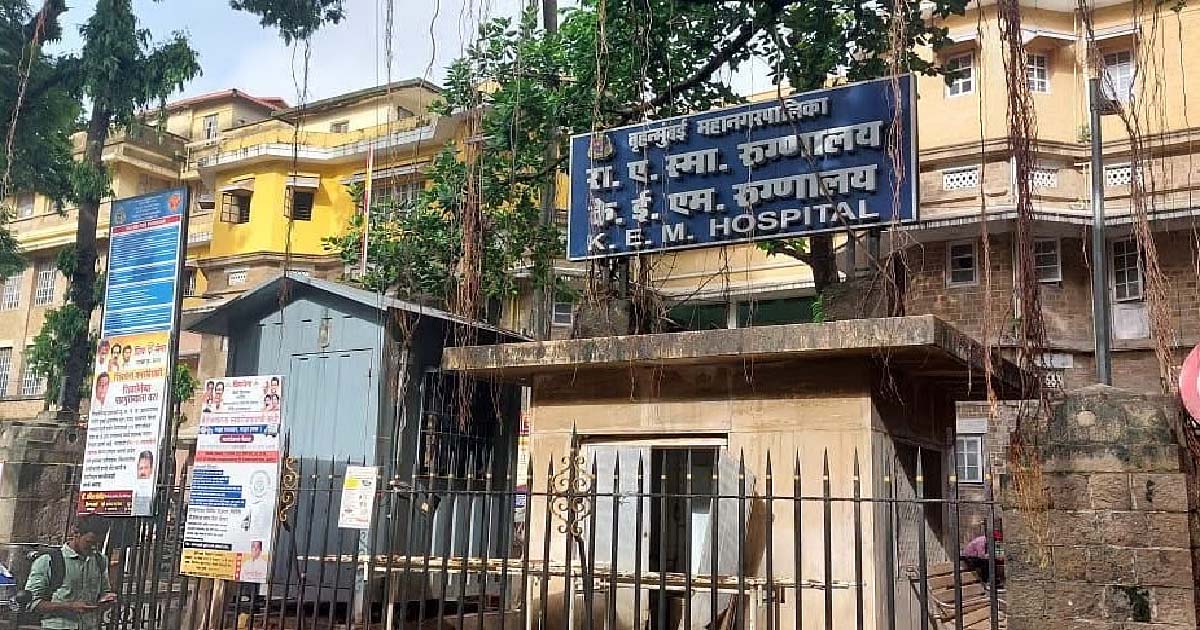National News
SC issues contempt notice to UP’s DG Prisons for non-compliance on release of convicts
The Supreme Court on Friday issued notice on a contempt plea filed against Uttar Pradesh Director General of Prisons for non-compliance with court’s earlier orders directing the state government to consider premature release of convicts, who have undergone more than 16 years of actual imprisonment and 20 years with remission.
Advocate Rishi Malhotra, representing the prisoners, submitted before a bench headed by Chief Justice D.Y. Chandrachud that due to inaction of the state, the petitioners continue to languish in jails despite categorial orders passed by the apex court. Malhotra stressed though most of the 48 petitioners have been granted permission for release, the remaining cases have not been considered.
In an order passed on March 14, 2022, the apex court directed the Uttar Pradesh government and the prison authorities to consider the case of the petitioners for premature release within 3 months from the date of the order as per the policy dated August 1, 2018.
After hearing arguments, the bench, also comprising Justice P.S. Narasimha, sought response from DG, Prisons. “Issue notice returnable on next Friday,” it said.
Malhotra stressed petitioners were continuing to languish in jail despite prison authorities recommending their premature release, which amounted to a violation of their fundamental right to life and liberty under Article 21.
“The petitioners continuous to languish in jail custody despite the order passed by this court which is nothing but clear infringement of their Fundamental Right guaranteed under Article 21 of the Constitution as well as illegal detention as the petitioners have already undergone much more than the prescribed sentence in judicial custody,” said the petition.
On January 5, the Supreme Court had asked the DG, Prisons, Uttar Pradesh, to file an affidavit in his personal capacity in connection with steps taken to grant benefits of remission to convicts.
The apex court, in a judgment in September last year, had issued several directions impacting remission of nearly 500 convicts undergoing life imprisonment in Uttar Pradesh.
The UP government on August 1, 2018, issued a remission policy for prisoners undergoing life imprisonment. According to the government, for a lifer to be considered for premature release, the prisoner should undergo 16 years of actual sentence and 4 years of remission – 20 years of total sentence. The policy was amended subsequently in July 2021, 16 years actual sentence and 4 years remission was not changed, but a rider was added that to be eligible the convict must be above 60 years.
The top court had said that all cases for premature release of convicts undergoing imprisonment for life should be considered in terms of the policy dated August 1, 2018. It added that the restriction that a life convict is not eligible for premature release until attaining the age of 60 years, which was introduced by the policy of July 28 2021, stands deleted by the amendment dated May 27, 2022. Hence, no case for premature release shall be rejected on that ground, it said.
It had said that there was no requirement for the convict to submit an application for premature release, and jail authorities must consider their cases automatically.
The top court had also said that district legal services authorities in Uttar Pradesh shall take necessary steps in coordination with the jail authorities to ensure that all eligible cases of prisoners who would be entitled to premature release in terms of the applicable policies, as noticed above, would be duly considered and no prisoner, who is otherwise eligible for being considered, shall be excluded from consideration.
National News
Mumbai: BMC-Run KEM Hospital Commissions Ultra-Modern Modular OTs For Heart Transplants And Complex Surgeries

Mumbai, Dec 26: Mumbai’s BMC-run KEM Hospital has strengthened its advanced healthcare infrastructure with the commissioning of ultra-modern steel modular operation theatres (OTs) designed for heart transplants and other complex surgeries. Following the completion of sterilisation protocols, cardiac surgeries have already commenced in the new facility.
The newly installed modular OTs feature steel walls, ceilings, frames and panels, making them resistant to dust, moisture and water. This design significantly improves cleanliness and simplifies sterilisation, thereby reducing the risk of post-operative infections.
“Equipped with laminar airflow systems and HEPA filters, the operation theatres ensure a continuous supply of clean, controlled air by filtering out bacteria, viruses, dust particles and other airborne contaminants,” said hospital officials, adding that the advanced setup will support not only heart transplants but also other organ transplants, surgeries for congenital disorders and complex paediatric procedures.
To further enhance efficiency, especially in emergency organ transplant cases, the hospital has developed special internal connectivity and separate entry points. These allow donor organs to be transported directly to the designated operation theatre, minimising time delays and reducing associated risks.
With this upgrade, KEM Hospital is expected to play a more significant role in organ transplantation and advanced surgical care in Mumbai and across Maharashtra.
Business
Keralites gulped liquor worth over Rs 332 crore during Christmas

Thiruvananthapuram, Dec 26: The Kerala State Beverages Corporation (BEVCO) recorded a sharp surge in liquor sales during the Christmas week, with revenues touching a record Rs 332.62 crore, according to official figures.
The Christmas week sales are calculated for the four days from December 22 to December 25, and officials said this year witnessed a significant jump compared to previous years.
Data shows a 19 per cent increase in sales over the corresponding period last year, underlining a strong festive demand.
The sharpest spike was recorded on Christmas Eve, when liquor sales alone amounted to Rs 114.45 crore.
In comparison, sales on the same day last year stood at Rs 98.98 crore, indicating a substantial year-on-year rise.
Officials attributed the surge not only to the festive season but also to improved consumer facilities introduced by BEVCO over the past year.
The corporation had expanded its premium retail infrastructure, including the launch of new premium counters aimed at offering a better purchasing experience and a wider selection of high-end products.
Premium outlets were recently opened in key centres such as Thrissur and Kozhikode, and officials said these had a positive impact on overall sales figures.
The enhanced facilities helped reduce crowding at regular outlets and encouraged higher-value purchases, contributing to the increase in revenue.
The Corporation has traditionally seen a spike in sales during festival periods such as Onam and Christmas, but this year’s figures mark one of the highest Christmas week turnovers recorded by the state-run corporation.
The rise in liquor sales is expected to provide a significant boost to the State exchequer, as the corporation is a major contributor to Kerala’s revenue through taxes and duties.
Liquor is sold through state-run 325 retail outlets.
Studies have shown that around 10 per cent of the 3.30 crore Kerala population are tipplers, including around three lakh women.
In 2024–25, Kerala’s liquor sales rose to Rs 19,730.66 crore, up from Rs 19,069.27 crore in 2023–24, marking an annual growth of 3.5 per cent.
Business
Govt drive returns Rs 2,000 crore unclaimed savings to rightful owners

New Delhi, Dec 26: The government has succeeded in returning to the rightful owners a total amount of nearly Rs 2,000 crore that was stuck as “unclaimed savings” across banks, insurance, mutual funds, dividends, shares, and retirement benefits held within the regulated financial system, according to an official statement issued on Friday.
The funds have been restored through the Centre’s “Your Money, Your Right” nationwide awareness and facilitation initiative, launched in October 2025 to help citizens identify and reclaim unclaimed financial assets. The initiative is being coordinated by the Finance Ministry’s Department of Financial Services, with financial sector regulators reaching across digital portals with district-level facilitation.
Across generations, Indian families have saved carefully through opening bank accounts, purchasing insurance policies, investing in mutual funds, earning dividends from shares, and setting aside money for retirement. These financial decisions are taken with a hope and responsibility, often to secure children’s education, support healthcare needs, and ensure dignity in old age.
Yet, over time, a significant portion of these hard-earned savings has remained unclaimed. The money has not vanished, nor has it been misused. It lies safely with regulated financial institutions, separated from its rightful owners due to a lack of awareness, outdated records, changes in residence, or missing documentation. In many cases, families are simply unaware that such assets exist.
The volume of unclaimed financial assets in India is significant and spans multiple segments of the formal financial system. Indicative estimates suggest that Indian banks together hold around Rs 78,000 crore in unclaimed deposits. Unclaimed insurance policy proceeds are estimated at nearly Rs 14,000 crore, while unclaimed amounts in mutual funds are about Rs 3,000 crore. In addition, unclaimed dividends account for around Rs 9,000 crore, according to official figures.
Together, these amounts underline the scale of unclaimed savings belonging to citizens that continue to remain unused, despite being securely held within the financial system.
Your Money, Your Right is a nationwide effort to reconnect citizens with these forgotten financial assets and ensure that money that belongs to individuals and families ultimately finds its way back to them.
These unclaimed financial assets arise when money held with financial institutions is not claimed by the account holder or their legal heirs for a prolonged period. Such assets include:
*Bank deposits such as savings accounts, current accounts, fixed deposits, and recurring deposits that have not been operated for ten years or more.
*Insurance policy proceeds that remain unpaid beyond the due date
*Mutual fund redemption proceeds or dividends that could not be credited due to reasons such as a change in bank account, bank account closure, incomplete bank account in records, etc.
*Dividends and shares that remain unclaimed and are transferred to statutory authorities
*Pension and retirement benefits that are not claimed within the normal course
In most cases, assets may become unclaimed because of routine life events such as migration for work, changes in contact details, closure of old bank accounts, or lack of information among family members and legal heirs.
The Government is coordinating with the Reserve Bank of India (RBI), the Insurance Regulatory and Development Authority of India (IRDAI), the Securities and Exchange Board of India (SEBI), the Investor Education and Protection Fund Authority (IEPFA), and the Pension Fund Regulatory and Development Authority (PFRDA) to help citizens identify, access and reclaim financial assets that legally belong to them, using simple processes and transparent systems.
-

 Crime3 years ago
Crime3 years agoClass 10 student jumps to death in Jaipur
-

 Maharashtra1 year ago
Maharashtra1 year agoMumbai Local Train Update: Central Railway’s New Timetable Comes Into Effect; Check Full List Of Revised Timings & Stations
-

 Maharashtra1 year ago
Maharashtra1 year agoMumbai To Go Toll-Free Tonight! Maharashtra Govt Announces Complete Toll Waiver For Light Motor Vehicles At All 5 Entry Points Of City
-

 Maharashtra1 year ago
Maharashtra1 year agoFalse photo of Imtiaz Jaleel’s rally, exposing the fooling conspiracy
-

 National News1 year ago
National News1 year agoMinistry of Railways rolls out Special Drive 4.0 with focus on digitisation, cleanliness, inclusiveness and grievance redressal
-

 Maharashtra1 year ago
Maharashtra1 year agoMaharashtra Elections 2024: Mumbai Metro & BEST Services Extended Till Midnight On Voting Day
-

 National News1 year ago
National News1 year agoJ&K: 4 Jawans Killed, 28 Injured After Bus Carrying BSF Personnel For Poll Duty Falls Into Gorge In Budgam; Terrifying Visuals Surface
-

 Crime1 year ago
Crime1 year agoBaba Siddique Murder: Mumbai Police Unable To Get Lawrence Bishnoi Custody Due To Home Ministry Order, Says Report












